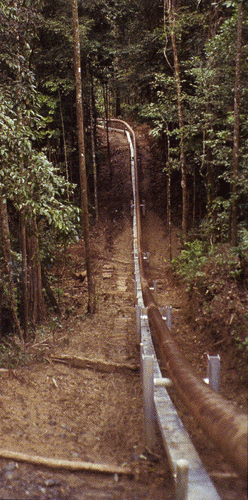Ecuador’s plan to protect rainforest from oil drilling looks doomed
mongabay.com
October 9, 2008
Ecuador’s proposal to protect one of the world’s most biodiverse rainforests from oil development has failed to secure any funding ahead at its December deadline, reports the Guardian Unlimited.
The plan, set forth by president Rafael Correa in April 2007, calls for $350 million in donor funds per year for a decade to leave the oil — which lies near Yasuni National Park in the Ecuadorian Amazon — in the ground. The proposal would avoid the release of around 108 million tons of carbon dioxide into the atmosphere and safeguard from development a region that is home to some of the world’s highest concentrations of biodiversity as well as indigenous groups still living in traditional ways. Previous drilling in the region — known as the Oriente — caused extensive environmental damage. Chevron is currently facing a $16 billion liability for damages caused by Texaco, which operated in the area from 1964-1992.
 Oil pipeline in the Amazon rainforest of Ecuador Suggested reading: Savages, a book by Joe Kane, tells the story of the Huaorani, a tribe living in the deepest part of the Amazonian rain forest in Ecuador, and their struggles with Texaco. |
The Guardian reports that while there has been political interest from Germany, Spain, and Norway in the plan, no one has offered much in the way of cash. Norway recently said it would contribute up to $1 billion to Brazil’s fund to protect the Amazon rainforest.
“The first option is to leave that oil in the ground, but the international community would have to compensate us for immense sacrifice that a poor country like Ecuador would have to make,” President Correa said in a radio address when he first put forth the proposal. “Ecuador doesn’t ask for charity, but does ask that the international community share in the sacrifice and compensates us with at least half of what our country would receive, in recognition of the environmental benefits that would be generated by keeping this oil underground.”
Ecuador has shown particular interest in the environment of late. Last week the country passed a constitution that established a “Bill of Rights” for the environment that effectively grants its ecosystems legal rights akin to those afforded to people and businesses. The government has also clamped down on illegal migration to the Galapagos islands, a chain famed for its wildlife, although it has controversially not restricted tourists.